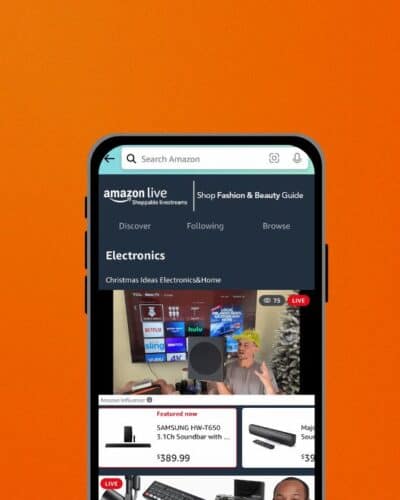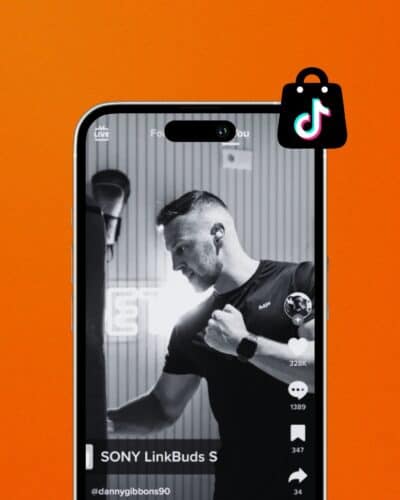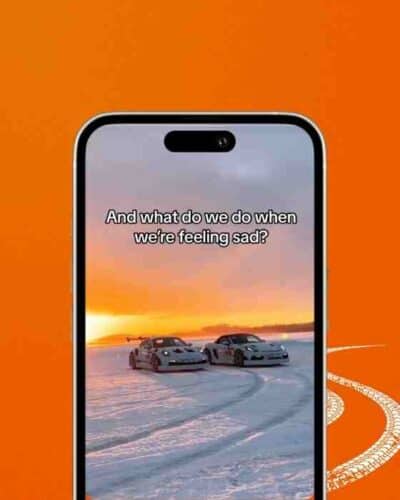The metaverse is a hypothesized iteration of the internet. It’s a combination of multiple elements of technology, including virtual reality, augmented reality and video, where users live within a digital universe. In this article, we’ll take a closer look at how the metaverse has evolved and shifted to the forefront of the commercial world with developments from Meta and Roblox alike, and the similarities shared with the fictional concept of Ready Player One. We will also look at metaverse marketing, specifically how platforms will build a metaverse to sell products or experiences.
Facebook Rebranding as Meta
Mark Zuckerberg, the man known for collecting countless bytes of our data, and shirking the responsibility of content posted to his social platform, now wants all the spoils for the expansion of what we know as a metaverse.
Facebook officially rebranded its corporate identity as Meta on the 28th of October 2021, although those using the social media platform shouldn’t expect any changes to the name or familiar blue and white icon anytime soon. This is a similar transition to that of Google in 2015 when the search engine opted for a name change of its own, forming a new holding company responsible for the ownership of YouTube and Android etc named, Alphabet, although the search engine remained with its original moniker.
Meta’s goal is to bring the metaverse to life, providing people locally, regionally and globally with the opportunity to connect using technology and augmented reality (AR).
When asked about the future of Meta, Zuckerberg said “Imagine you put on your glasses or headset and you’re instantly in your home space.”
“There are parts of your physical home recreated virtually, it has things that are only possible virtually and it has an incredibly inspiring view of whatever you find most beautiful,” he added.
Meta recently launched Horizon Worlds, a free-to-play virtual reality, online video game developed for Microsoft Windows and Oculus Quest. The game demonstrates Meta’s first real plunge into an immersive virtual universe however, the game has only been available to users since December 9th so there is yet to be sufficient data to analyze. However, Horizon Worlds stands as Meta’s first test of what metaverse marketing will look like and how a new form of marketing can impact the marketing industry.
What is Second Life?
Second Life is an application that enables its users, or “residents”, to create virtual versions of themselves, called avatars. Many have likened the virtual space to a mere chat room; however, the possibilities within this metaverse are far beyond the constraints of an early-internet messaging board.
Despite its seemingly digital existence, Second Life influences decisions made in the real world, those decisions being real people, with real money.
Residents have the ability to contribute to the world around them by creating buildings, objects or even animations. The process of resident additions is called user-generated content, which is pretty self-explanatory but, because of this, it makes sense that Second Life is an adults-only platform, as some creations can make you a little hot under the collar.
In many ways, Second Life shares similarities to massively multiplayer online role-playing games (MMORPGs). Like an MMORPG, users are represented by a customisable avatar and can perform extraordinary actions such as fly and teleport.
However, residents in Second Life aren’t in a game, though there are game-like concepts inside the virtual space. They inhabit a virtual world free of predetermined goals and tasks, as is the real world.
Is Roblox a Metaverse?
While Meta might appear to be the frontrunner and the name on everyone’s lips when discussing the metaverse, there is actually a far superior entity that is, to date, swarming with children and teens.
On the surface, Roblox is an online platform that enables its users to “imagine, socialize, chat, play, create, interact and relate with others in many ways” according to Webwise.
What they failed to mention is the chasing down by packs of incessant avatars, wearing a vacant grin across their countenance.
Looting, chasing and the odd hit-and-run aside, Roblox has become a safe online space in the lives of children across the US and wider parts of the world.
However, in the past year, Roblox has been making headway in the race to establish metaverse supremacy. In fact, the platform has had some thought-provoking examples that show how the worlds of marketing and AR can intertwine.
In October, Roblox revealed a new “unique user-generated experience” in collaboration with the popular US food chain, Chipotle. This unique experience involved Roblox users having the opportunity to win a free burrito, and to do so, all they had to do was pay a visit to Chipotle’s in-game store.
Unfortunately, Roblox suffered some extended bouts of downtime during the whole Chipotle fiasco, and despite a handful burrito related faults, the campaign was able to show the marketing industry the entailment of the metaverse and how actions in the virtual realm can have an impact on the physical side.
How Ready Player One Can Inspire Meta and Co
First of all, if you haven’t seen this Steven Spielberg film or read the science fiction novel by Ernest Cline, then please, add it to your list of priorities.
Ready Player One is perhaps the end goal for Meta, Roblox, Second Life and any other entities currently dipping their toes into the metaverse.
Set in 2045, in a dystopian future on the verge of collapse, humans find salvation by entering the Oasis. Created by James Halliday, the Oasis is an expansive virtual reality universe that enables its inhabitants to create custom avatars and defy the laws and the physical constraints of the real world. The movie follows Wade Watts, a young Columbus, Ohio teen who straps into his VR headset, with treadmill and full-body sensor attachments to embark on a series of jaw-dropping adventures that sees him fending off the likes of King Kong in one of his first tests.
The Oasis paints a mind-bending picture of what a metaverse can be and perhaps encapsulates the vision that Mark Zuckerberg has for Meta, a world in which anything becomes possible, with the only limitations being the depth of a single field of imagination.
How Can The Metaverse Help Progress Social Platforms?
As the metaverse continues to grow, it is safe to assume that the social media experience will only succumb to a more immersive experience. The metaverse seems poised to become the next major staple in the social media landscape, as is the vision with things such as Horizon Worlds, and even the hypothetical concepts of Ready Player One, in that these virtual universes enable people from the real world to tune in, meet people and socialize entirely within an immersive environment.
Such a landscape will require the current heavyweights on social media – TikTok, Snapchat, Instagram and the likes – to keep up with new developments by investing in both virtual and augmented reality technologies. Future Instagram content could provide influencers that focus on posting home and decor related content, to create a virtual reconstruction of their home, with engagements coming in the form of visitors to that space.
It is the current social media trailblazers who are able to adapt their mindset and who have the greatest advantage in making the next move into the metaverse.
Decentraland is a great example of how the future of social media might look. This 3D virtual reality world is powered by Ethereum Blockchain that allows users to create virtual buildings such as homes, casinos, art galleries, concert halls and theme parks, and charge other players to visit them. They are essentially NFT’s.
Decentraland consists of three of the major digital developments we’ve seen in recent years, Cryptocurrency, NFT’s and the metaverse. The social media landscape looks likely to follow this model that rewards creative work with a source of digital income, within a 3D virtual universe.





